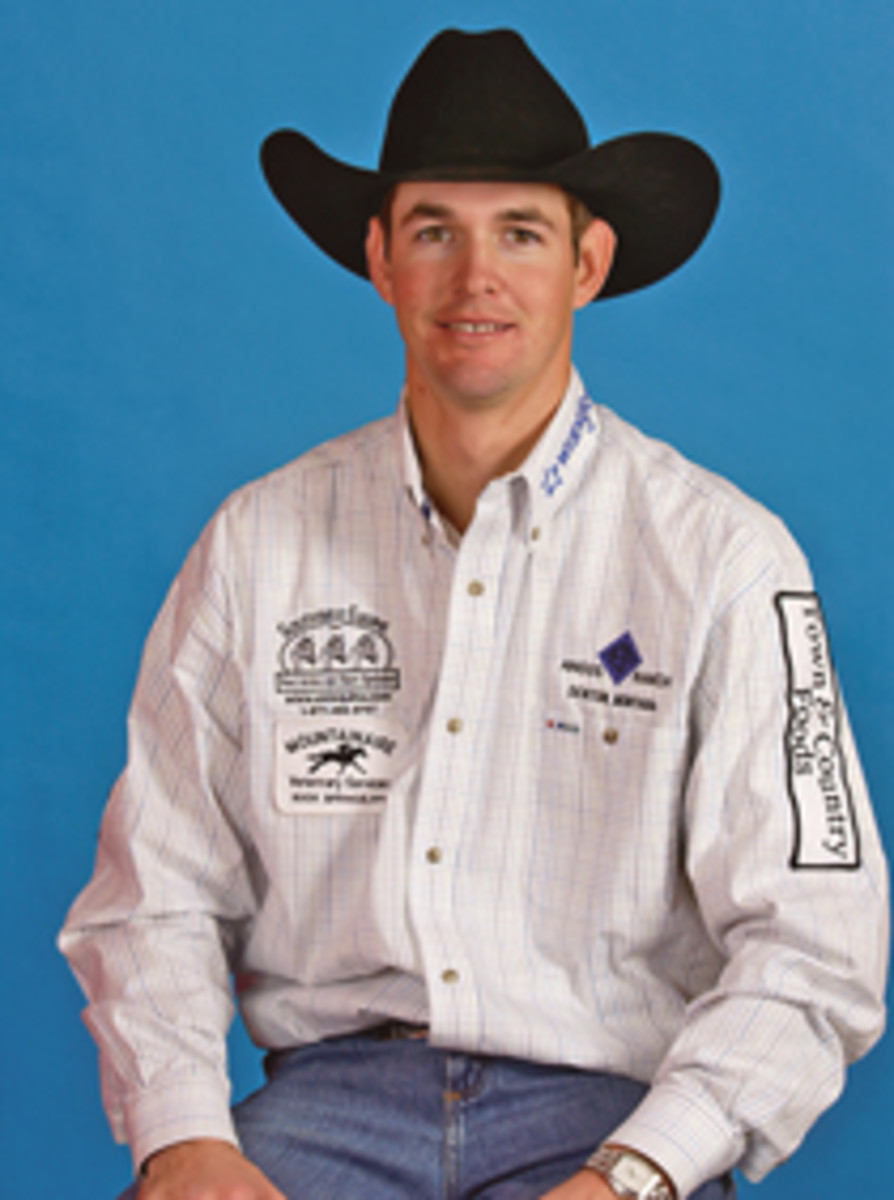
If you’re going to rope for a living, or you want to rope as a hobby without blowing your life savings on it, you need to treat your roping just like any other business. You have to put the time and effort into it just like anything else, if you want to get something out of it. You can’t expect to improve on your profits if you just let it run on its own. And you don’t want to end up the broke cowboy at the end of the road.
If you do want to rope for a living, you have to put in the effort in the practice pen. That means you don’t just spend an hour a day there, and spend the rest of the day on the golf course. You need to put in a six- or seven-hour day improving your horsemanship skills, horses and roping skills. You also need to work on your mental game, because there’s more to this than just the physical side.
I was talking to Allen (Bach) the other day. He was teaching a school and asked the students how many steers they were going to rope in the next week. They said about 40. He then asked them how they expected to beat other people who were doing the same thing. You have to go above and beyond to win, because the more you put into it the more you’re going to get out of it. And if others work harder than you do, they deserve to win more.
When you have a job, you have to work seven or eight hours a day. So you should expect to spend at least that much time if you want to get to the top level in this business, too.
You need to use your head on which ropings and rodeos you enter, as far as what makes sense for you financially and for your horse. For example, it might not make sense to drive from Texas to Montana with your good head horse, run at a $1,000 rodeo and put 3,000 miles on your head horse and your truck. Then, when the big rodeo comes around your horse isn’t feeling as good as he should. You may win a little bit, but if it isn’t working at the bigger rodeos because your horse isn’t feeling good, you’re actually losing money in the long run.
You don’t want to live above your means when you’re roping for a living. I rodeoed in a camper for three years, because that’s what I could afford. You don’t need a big rig just because everybody else has one.
You should always present yourself well and carry yourself well, because sponsors really help you get down the road and pay some of your bills for you. Have your shirt tucked in, starch your jeans and shirts. Look professional when you’re out there rodeoing. That’s what companies want. That’s who they can trust to represent them in a professional manner.
If you’re a hobby roper, you don’t want to spend your life savings going to ropings every weekend. If you can afford going all the time and not winning, that’s fine if you enjoy doing it. But use your head if you’re counting on that as a paycheck and more is going out than is coming in. You may need to re-evaluate. You don’t want to run yourself into the ground and stay in debt because of roping.
Golf is my hobby, and I have no income from it. But I don’t golf at luxury resorts, where it’s so expensive that I can’t pay my bills. That’s just common sense.
Hobby ropers who want to compete still need to put in a couple hours at night after work three days a week if you want to be as sharp as you need to be. I try to rope at least five or six times a week just to keep myself sharp. If it’s a hobby, the main thing is to keep it fun. But winning’s fun, too. If you lose because you aren’t practicing enough, it won’t be as much fun.
As for the horse end of things, if you’re a hobby roper you need a good, solid horse who’s not going to hurt you or buck you off, even if you only get on him two or three days a week. You need an old campaigner who’ll do the same thing every time. Roping that little, you aren’t going to be able to bring a younger horse along and give him the foundation you’re going to want and need down the line. You’re also not going to be able to keep one working sharp.
Spending a few hundred dollars on a school might seem like a lot at the time, but it’ll improve your roping 10 times as fast as trying to figure things out on your own. That’s money well spent. Without getting that expert advice, it’s more of a trial-and-error process. A pro might be able to help you figure something out instantly that otherwise might take you a year or two to figure out.
Whether you’re going to rope for a living or as a hobby, keep it fun. If you don’t enjoy doing it, there’s not a whole lot of point to it. What a great sport to meet people and have fun with them. You can make so many friends and get to hang out all weekend, whether this is what you do for a living or for fun. It’s a great family sport. Look at all the families that rope. Roping is the best sport in the world.










